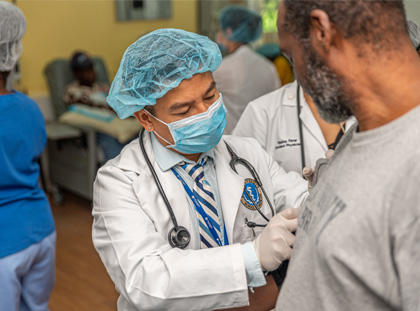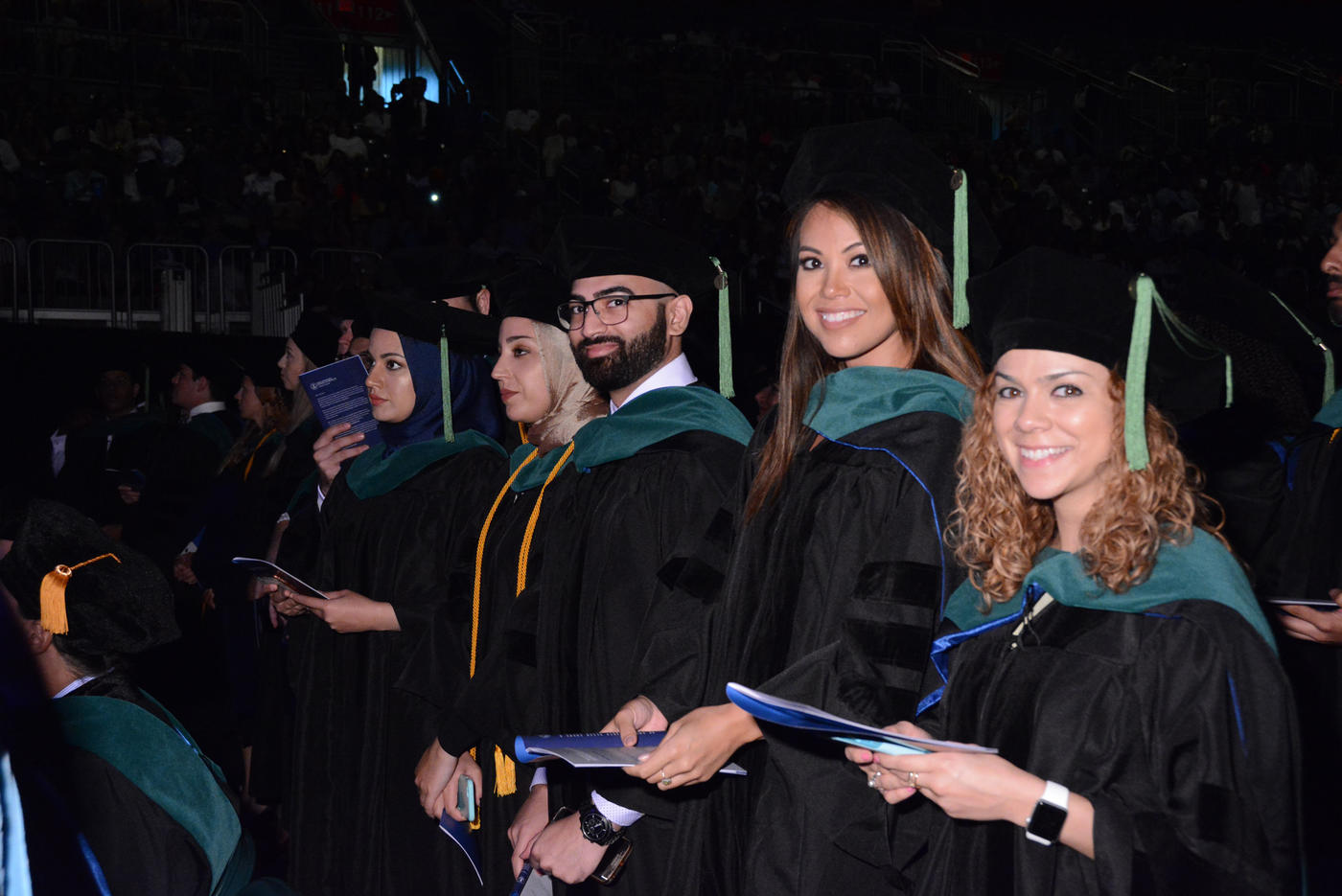You are well on your way to becoming a physician. You have studied hard, excelled in your classes, and developed crucial skills. In your final year of medical school, you will need to apply for residency. After earning your Doctor of Medicine (MD) degree from an accredited school such as Ross University School of Medicine (RUSM)*, a medical residency is the next step to becoming a practicing physician. Residencies give medical graduates time to practice and develop the clinical skills required in order to practice medicine on their own. A key part of the residency application process is the interview, during which you must demonstrate to your interviewers that you are an excellent candidate for their program.
A residency interview is more than just a question-and-answer session. It is often a day-long event that includes an orientation to the institution and the program, a tour of the facilities, social activities such as meals with current residents, and interviews with staff and residents. This article can help you with your medical residency interview preparation so that you feel confident and prepared during this important process.
Residency Interview Preparation Tips
1. Personal Statement
Applying for medical residencies is a complex, difficult process. But going through the process can help prepare you for interviews. As part of the application portfolio for a medical residency, you will need to write a personal statement. In this document, you will describe your achievements and explain your reasons for wanting to pursue a particular field of study and applying to a specific program. You will need to convey this information during your interview as well, so writing your personal statement can help you collect your thoughts and explain your reasoning in a concise way. You don’t want to stumble and mumble when your interviewer asks why you’re interested in their program.
2. Prepare for the interview question "Tell Me About Yourself"
Your interviewers will want to know a lot about you, your skills, and your background. The questions will range from broad (“tell me about yourself”) to narrow (“what makes you interested in this particular program?”). Be prepared to express not only what you know and what you can do, but you should also be able to describe your values, your professional goals, and your motivations for wanting to pursue a career in a particular field of medicine.
3. Research common residency interview questions
You can’t know ahead of time exactly what questions will be asked, but there are numerous resources to help you get an idea. The American College of Physicians® (ACP) details some questions you may be asked. The Association of American Medical Colleges (AAMC) also lists common residency interview questions. Reading over these samples can give you a pretty good idea of the kind of information you should be ready to describe.
4. Research the residency program you want to enter
Before your residency interview, spend some time reading about the specifics of the program you want to enter, and understand exactly how the program will serve your particular interests. The interview is your opportunity to learn more about a residency program and determine how it will help you develop your skills and achieve your professional goals. Therefore, you should be prepared not only to answer questions, but to ask questions as well. The American Academy of Family Physicians (AAFP) has a page of questions—including those particular to specific specialties—you might ask your interviewers. The AAMC has a list of potential questions you could ask suggested by current or former residents. You should also read up on the backgrounds of your potential colleagues to see if physicians in the program have interests similar to yours. If you find someone researching a topic of interest to you, you can ask them the ways in which the program will help you gain knowledge of that subject. When you apply for residencies, you will create a list of programs you wish to apply to ranked in order of preference. The information you learn during the interview can help you decide which programs best meet your needs and is very useful for creating your rank order list.
5. Dress the part
Many people wonder what to wear to a residency interview. You should treat a residency interview like any other professional interview—men should wear a suit and tie, and women should wear a skirt suit or pantsuit. Don’t overdo it on makeup, perfume, cologne, or jewelry—a little goes a long way.
It’s also important to get contact information for the people who will interview you. After your interview, be sure to send them a thank you note expressing gratitude for their time and for the opportunity to learn about the program.
What To Do Before Your Residency Interviews
6. Practice your residency interview
There’s no shame in asking for residency interview help—interviewing doesn’t come naturally to most people. If you feel intimidated by the prospect of the interview, one of the best tips for how to prepare for residency interviews is to practice. At RUSM, the Office of Career Advisement helps with your residency interview preparation by conducting mock interviews. This will help you gather your thoughts and put you more at ease when it’s time for the real thing. Consider recording your practice interviews so you can see where you stumble, or if you use too many filler words like “um” or “uh.” You don’t want your interviewers thinking you’re totally unprepared, and you want to show that you have given a lot of thought to the ways in which their program fits your goals. However, you don’t want to over prepare—interviewers don’t want to hear you robotically reciting memorized answers to general questions. It’s fine to admit you don’t know the answer to a particular question, or to ask for a moment to think about how to formulate a response.
7. Talk to RUSM Alumni and students in your preferred specialty
You may find it beneficial to talk to students who have matched in the specialty you hope to study for advice on how to approach the interview. They can give you pointed guidance and help address specific concerns you may have.
For more information on how to prepare for residency interviews, the ACP’s Guidelines for the Residency Interview Process provides helpful tips that can help you present yourself in a professional manner. Similarly, the AAMC’s Interviewing for Residency Positions has a wealth of information you’re sure to find helpful.
You now have a good idea about how to prepare for residency interviews. With some preparation and practice, you can make a good impression on your interviewers. As a med student, Ross University School of Medicine can teach you the knowledge and skills you need to succeed prior to residency. If you are not yet a med student, read about the RUSM MD Program and, when you are ready, apply for admission to RUSM and begin your journey to a rewarding medical residency and a career as a physician.
Related Resources:
*Ross University School of Medicine is accredited by the Caribbean Accreditation Authority for Education in Medicine and other Health Professions (CAAM-HP, www.caam-hp.org).
CAAM-HP is the legally constituted body established in 2003 under the aegis of the Caribbean Community (CARICOM), empowered to determine and prescribe standards and to accredit programs of medical, dental, veterinary and other health professions education on behalf of the contracting parties in CARICOM.
Accreditation by CAAM-HP is a rigorous, peer review process which examines all aspects of a medical program. The CAAM-HP board, an independent and autonomous body of professionals, only certifies medical schools which are operating at the highest levels of industry standards.
Through this accreditation, the CAAM-HP provides assurance to medical students, graduates, the medical profession, healthcare institutions and the public that programs leading to qualifications in medicine meet appropriate national and international standards for educational quality, and that the graduates have a sufficiently complete and valid educational experience.



